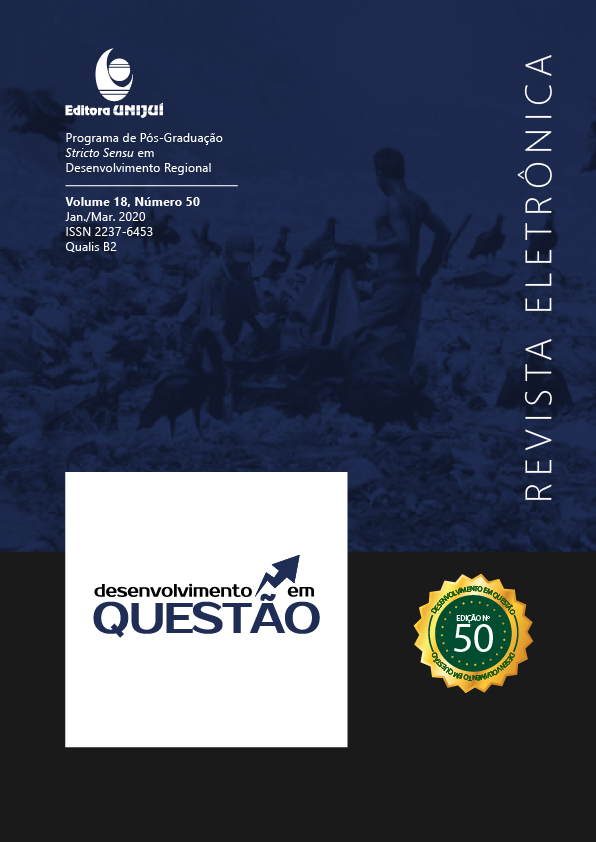The “marks” on territories formed by German ethnic groups on the basis of such stereotypes as language, work, and religiosity: the case of the Linha Acre Rural Community - Cândido Godói (RS)
DOI:
https://doi.org/10.21527/2237-6453.2020.50.89-108Keywords:
Memory. Stereotypes. German Immigrants.Abstract
The spread of an industrial mentality in rural areas by means of large-scale food production has been driving change in small rural communities that are compelled by necessity to look for alternatives aimed at their continuity not only in physical terms, but also with regard to their social and cultural specifities. This study is focused on identification of aspects related to stereotypes that “mark” territories formed by social groups of German Brazilians as they are considered to be relevant so that said players may find new meanings in the environment they live. This return to the past is only possible by means of recollections and memory that is present in the everyday life and reveals itself in traditions, customs, and habits as something imperceptible but powerful enough to change the future. The technique used for data collection was in-depth interviews in ethnographic research carried out in the Linha Acre rural community, Cândido Godói (RS) in 2016 and 2017. At the data analysis stage, rootedness with regard to stereotyped constructions in such elements as language, work, and religiosity chosen for the research was positively verified.
Downloads
Published
How to Cite
Issue
Section
License
By publishing in Revista Desenvolvimento em Questão, authors agree to the following terms:
All works are published under the Creative Commons Attribution 4.0 International License (CC BY 4.0), which allows:
Sharing — to copy and redistribute the material in any medium or format;
Adaptation — to remix, transform, and build upon the material for any purpose, even commercially.
These permissions are irrevocable, provided that the following terms are respected:
Attribution — authors must be properly credited, a link to the license must be provided, and any changes made must be indicated.
No additional restrictions — no legal or technological measures may be applied that legally restrict others from doing anything the license permits.
Notices:
The license does not apply to elements that are in the public domain or covered by legal exceptions.
The license does not grant all necessary rights for specific uses (e.g., image rights, privacy, or moral rights).
The journal is not responsible for the opinions expressed in the articles, which are the sole responsibility of the authors. The Editor, with the support of the Editorial Board, reserves the right to suggest or request modifications when necessary.
Only original scientific articles presenting research results of interest that have not been previously published or simultaneously submitted to another journal with the same purpose will be accepted.
Mentions of trademarks or specific products are intended solely for identification purposes and do not imply any promotional relationship by the authors or the journal.
License Agreement (for articles published from 2025 onward): Authors retain the copyright to their article and grant Revista Desenvolvimento em Questão the right of first publication.











